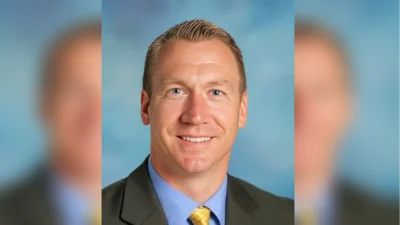Illinois State Representative Steven Reick | Representative Steven Reick (R) 63rd District
Illinois State Representative Steven Reick | Representative Steven Reick (R) 63rd District
In a recent report, concerns have been raised regarding the productivity and accountability of the Illinois General Assembly's sessions. The Veto Session in November was described as "abbreviated and unproductive," with no vetoes considered or significant issues addressed. This led to an adjournment vote that did not conclude the assembly's work but instead called for a return before the inauguration of the 104th General Assembly, known as a "Lame Duck" session.
The term "Lame Duck" refers to legislators who either lost re-election or chose not to run again, allowing them to take controversial votes without accountability. During this session, the voting threshold drops from a supermajority of 71 votes needed during Veto Sessions to a simple majority of 60 votes after January 1st. This change raises concerns about passing controversial legislation without sufficient oversight.
"Lame Duck sessions should not be allowed," it is stated, highlighting their historical association with passing contentious legislation with little public debate. The concern is that such sessions enable actions contrary to transparency and accountability principles.
As families prepare for holidays, there is speculation that lawmakers may be crafting expensive legislation behind closed doors in Springfield. Potential measures could include tax increases or fund reallocations impacting areas like mass transit and pensions.
The state's budget has increased significantly from $36 billion in 2018 (approximately $45 billion adjusted for inflation) to over $50 billion this year, despite a tax increase. A $3 billion deficit looms in the upcoming budget year alongside a $730 million shortfall in mass transit funding.
Pension reform might also be on the agenda during Lame Duck sessions, raising concerns about rushed decisions without thorough consideration. Illinois' pension crisis remains a critical issue requiring careful deliberation rather than hasty reforms.
Recent reports from the Governor’s Office of Management and Budget indicate troubling economic indicators for Illinois. While efforts are made to present optimism about handling potential recessions better than before, job growth lags behind national rates significantly. According to COGFA Chief Economist Benjamin Varner, since October 2019, Illinois has only added around 29,000 jobs compared to the national rate increase of 4.9%.
These job growth figures highlight challenges facing Illinois' private sector compared to government and public sector gains. Addressing these issues requires acknowledging challenges honestly and collaboratively working toward solutions.
Despite these concerns, there's encouragement for residents to enjoy holiday traditions like selecting Christmas trees from McHenry County farms or supporting local businesses by purchasing locally made products.
The report concludes with wishes for peace and happiness during the holiday season while encouraging readers to count their blessings and extend help where needed.






 Alerts Sign-up
Alerts Sign-up